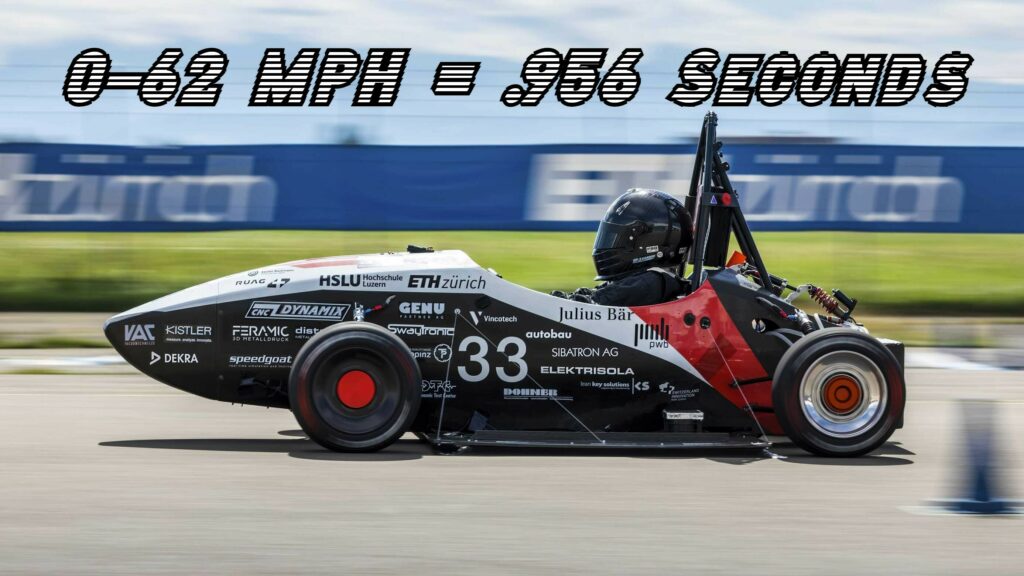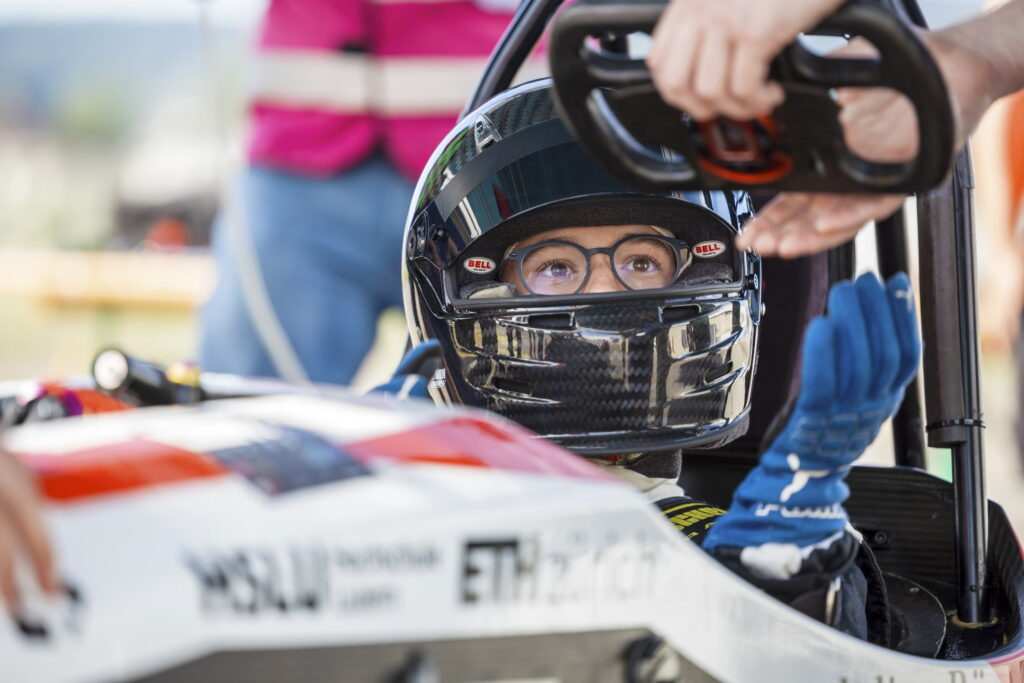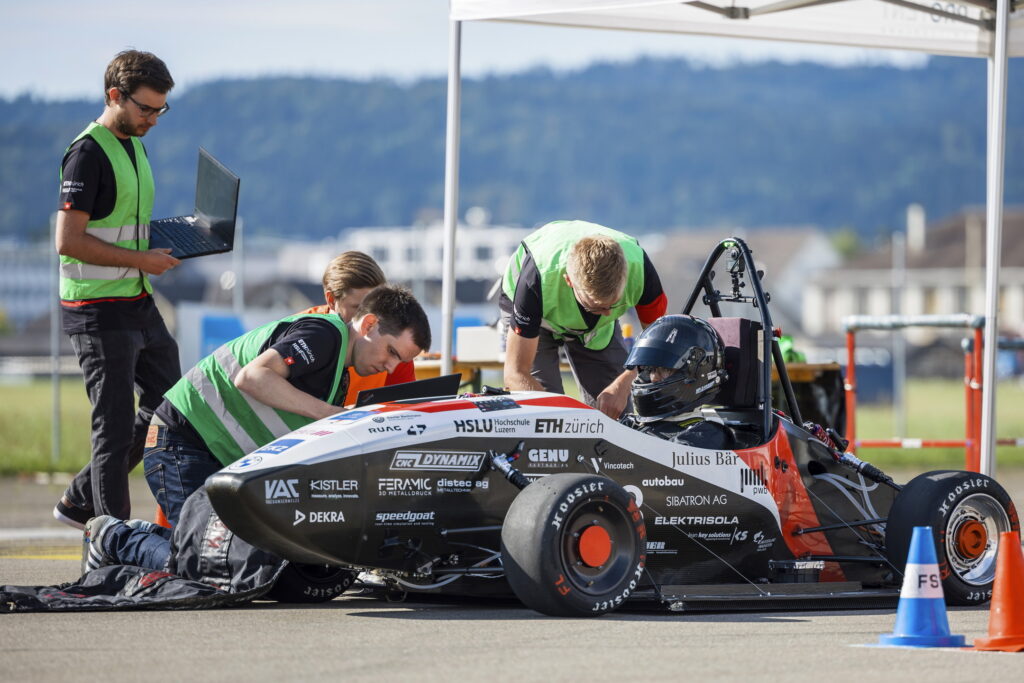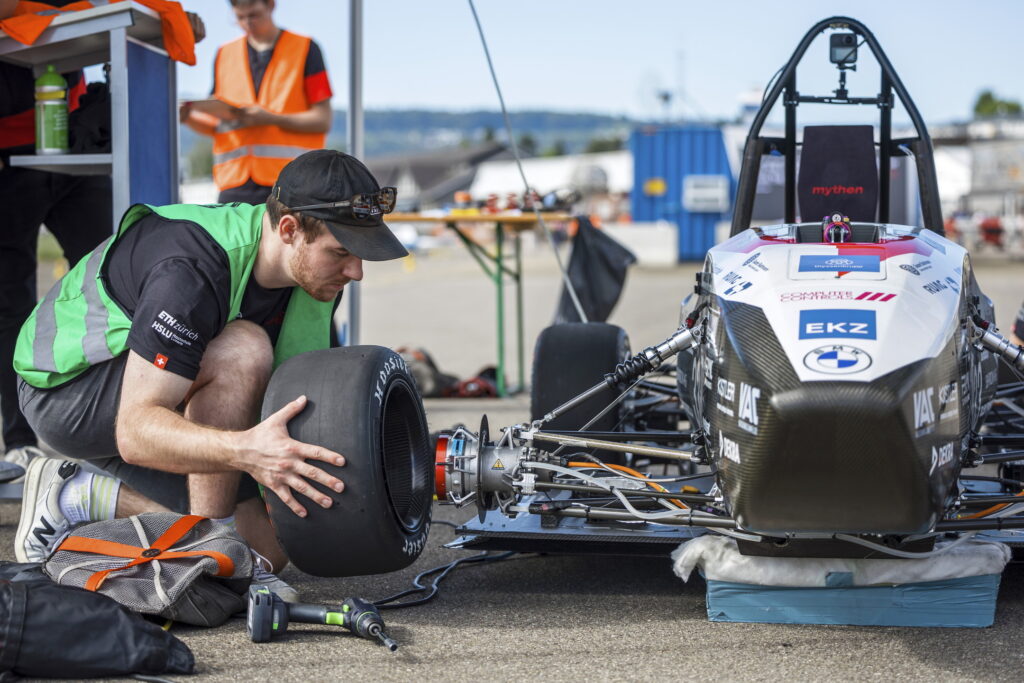A team of students from ETH Zurich and Lucerne University of Applied Sciences in Switzerland just set a new acceleration record for EVs. Their hand-built electric race car, called the Mythen, rocketed from 0-100 km/h (62.15 mph) in just 0.956 seconds.
ETH Zurich reports that Guinness World Records has confirmed that the Mythen broke the previous world acceleration record for electric vehicles, setting an incredibly high standard for anyone aiming to claim the crown. The previous record was held by a team called Foerderverein GreenTeam Uni Stuttgart e.V, which designed an EV that reached 100 km/h (62 mph) from a standstill in 1.461 seconds on September 23, 2022.
The students are all part of the Academic Motorsports Club Zurich (AMZ) and they’ve been working on the Mythen tirelessly. In total, the entire car weighs just 309 pounds (140 kg) thanks to the extensive use of carbon and aluminum honeycomb. Each wheel houses its own motor for a total system output of about 326 hp (243 kW).
That might sound like a low figure but that’s a power-to-weight ratio that even the most powerful hypercars can’t rival. In fact, it’s so much power for the platform that putting it all to the ground is nearly impossible. Only through the use of a system that literally sucks the car to the ground could the team find the traction needed to go that fast that quickly.
More: The 2024 Ford Mustang EcoBoost Can Hit 60 MPH In Just 4.5 Seconds
The group’s leader made it clear that this isn’t the single focus of the team. They’re all still going to normal classes and saddled with other challenges in addition to building the world’s fastest car from 0-100 km/h.
“Working on the project in addition to my studies was very intense. But even so, it was a lot of fun working with other students to continually produce new solutions and put into practice what we learned in class. And, of course, it is an absolutely unique experience to be involved in a world record,” says Yann Bernard, head of motor at AMZ.
This is the third time that the AMZ team has achieved this world record. It did so before in 2014 and then again in 2016. Last year, another team in Germany took the record with a time of just 1.46 seconds. Now that the figure is so low, it’ll take unbelievable engineering to do any better than just slight improvements.






















